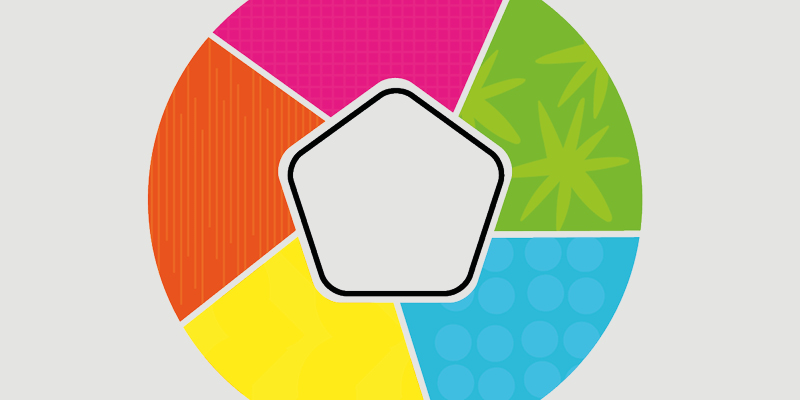
Our Community Without Limits Framework
Our behavioural themes
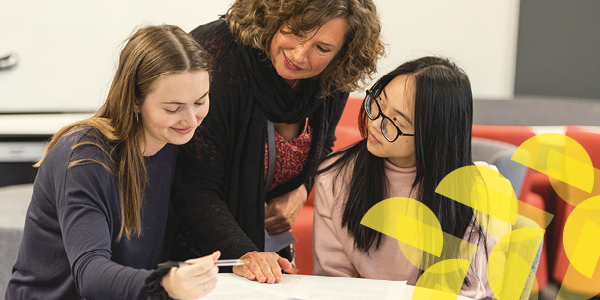

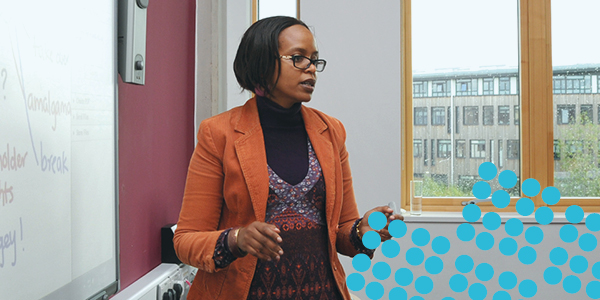

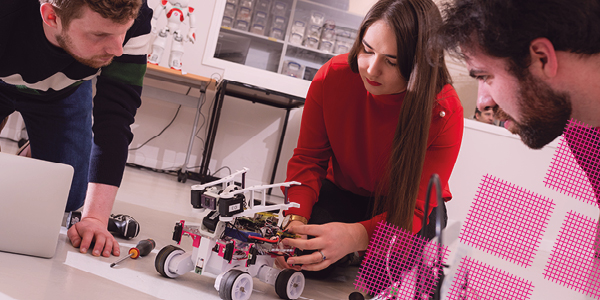
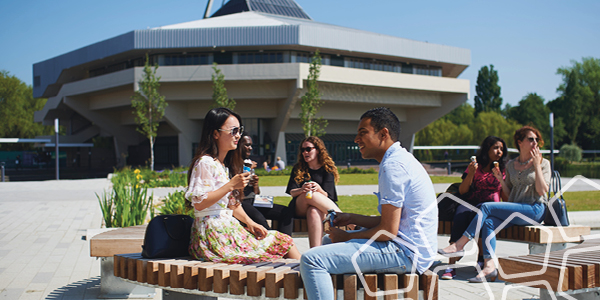
A thriving work environment is not just about knowledge and skills but about how we work together. Our staff community is the foundation of all the successes marked in our REF and TEF results and in so many other ways. So building a shared view of how we work well together, including the behaviours we value, is the key to our continued success in the future. This Community without Limits framework was created by our staff, in their words, and sets out behaviours which we can all get behind.
Charlie Jeffery, Vice-Chancellor and President
What is the framework?
Imagine technical skills as the tools in your toolbox - things like coding, writing reports, or analysing data. They're the expertise you need to get the job done. By comparison, behaviours are how you use those tools and how you interact with others while you're at it. They are things like supporting others, coming up with ideas or building good relationships. They're the soft skills that help you navigate your way through the workplace and enable a positive working environment. So, while technical skills get the job done, behaviours are what make sure you do it effectively and in synergy with your colleagues.
We've been listening to our staff, and together, we've identified some key behaviours that drive our collective success. We describe these in the Community Without Limits framework, which revolves around six key themes: Respect, Innovation, Open Communication, Collaboration, Making Things Happen and Big Picture. Having this shared understanding of our behaviours helps us create a workplace where everyone feels supported, included, and able to do their best.
What do the levels in the framework relate to?
Each behavioural theme in the framework is described at three different levels. In addition to the actions that we can all demonstrate to enrich our working environments, there are additional actions that those leading people and those leading the organisation can take to benefit the staff community. Having a levelled framework allows you to select the part of the framework that is most relevant to your context.
- ‘As a Colleague’ level: outlines the behavioural indicators that are important for all individuals within our staff community.
- ‘Leading People’ level: outlines additional indicators for line managers or for other roles that don’t involve formal line management but do involve leading or managing others. Roles will typically be, but not restricted to, Grades 5-8.
- ‘Leading the Organisation’ level: this level outlines additional indicators for strategic leaders. Roles will typically be, but not restricted to, Grades 9 and above.
Using the framework
The Community Without Limits framework is a versatile tool designed to enhance how we collaborate and interact as a community of staff. Created by our staff, in their words, it offers valuable support for both team dynamics and individual development, helping us to build and nurture great working environments at York. Some current applications are:
Team Development, Collaboration and Navigating Change
Leaders have found the framework particularly beneficial in shaping how teams function and communicate, both within and across departments. It can help you establish clear team principles, which is especially useful for newly formed teams or those navigating changes. Additionally, the framework is integrated into leadership development programmes, empowering leaders to create a collaborative and supportive environment for their teams.
- Find out more about supporting teams through change
- Explore leadership and management development
Individual Growth and Career Advancement
For personal development and career progression, the framework serves as a valuable guide. You can use it to shape discussions with your manager, mentor, coach, or anyone supporting your development. It allows you to assess your current strengths and areas for improvement, providing a clear pathway for growth. Its structured, levelled approach helps frame discussions around the qualities and skills needed for career advancement. By identifying areas for growth within the six core themes of the framework, you can explore relevant training and development opportunities that align with your ambitions and aspirations.
Developmental Feedback
The framework also facilitates effective feedback, offering a consistent language and structure to support personal growth. Whether through informal feedback or formal processes like the University’s 360-degree feedback tool—which is based on the principles of the Community without Limits framework—it provides actionable insights that guide your development journey.
- Find out more about 360 degree feedback
By integrating the framework into your daily work and professional development, you can not only improve how you work with others but also shape your career path to achieve your long-term goals.
FAQs
The Community Without Limits Framework describes ‘behaviours’, are these the same as values?
Values are beliefs about what is important, what motivates us and how we see the world. Behaviours are the practical application of values, translating them into day-to-day actions. As such, the Community Without Limits Framework describes the practical actions that help you work effectively, in synergy with your colleagues, and build a positive working environment.
How was the framework developed?
The framework was developed as a collaboration between occupational psychologists internal and external to the institution, balancing an internal perspective with independent framework development expertise.
Data gathering:
- All departments and directorates were invited to participate in the data gathering stage. Over 100 colleagues participated from a wide spread of roles and grades.
- Steps were taken to ensure the rigour of the data gathering stage, including the use of a logically selected mix of best practice competency modelling and job analysis methods: repertory grid technique, critical incident technique/key behavioural event interviews, focus groups, and visionary interviews.
Competency modelling:
- The framework was developed in line with best practice competency modelling.
- A draft framework was developed which presented an overall competency model, competency dimensions, defined levels, and lists of highly specific behavioural indicators using the organisation’s unique language (i.e the authentic voice of the University, as reflected in the common expressions, phrases and words used by participants in the interviews and focus groups).
Consultation and framework refinement:
The framework was then taken through three phases of staff consultation:
- In phase 1, as an initial sense check, the participants from the data gathering stage were invited to review the framework.
- In phase 2, key stakeholders were invited to conduct a formal review of the framework and suggest amendments to improve the relevance and fairness of the content, and create a ‘version 2’ that would be used for further consultation. During this stage a balance was sought between mirroring the language of participants and using language that is appropriate from an equality, diversity, inclusion and wellbeing perspective
- In phase 3, all staff at the University were invited to review the framework. Over 1.5k comments and ratings were gathered from over 150 staff who took part in surveys and deep-dive focus groups.
- The framework was approved by UEB.
Next steps
You can download a copy of either the full framework or a shortened version specific to the As a Colleague, When Leading People, or When Leading the Organisation level to fully familiarise yourself with the behaviours and reflect on how to apply it to your personal development, your team and your working environment.
- Download the full framework Community Without Limits Framework - Full (PDF
 , 5,133kb)
, 5,133kb) - Download the framework for CWL as a colleague Community Without Limits Framework - Colleague (PDF
 , 120kb)
, 120kb) - Download the framework for CWL leading people Community Without Limits Framework - Leading People (PDF
 , 120kb)
, 120kb) - Download the framework for CWL leading the organisation Community Without Limits Framework - Leading the Organisation (PDF
 , 121kb)
, 121kb)
